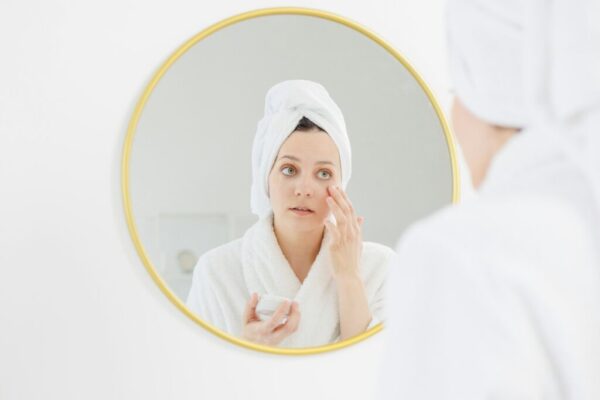How to Heal Face After Allergic Reaction
Having an allergic reaction on your face is uncomfortable. It is distressing. It could be due to a new skincare product, the environment, or food allergies. Knowing how to heal your face after an allergic reaction is crucial. This article will guide you through the steps to soothe and heal your skin effectively.

Understanding Allergic Reactions
![]()
Before starting to heal, you must understand allergic reactions. An allergy happens when your immune system overreacts. It overreacts to a harmless substance. This substance is called an allergen. Common allergens include pollen and pet dander. They also include certain foods and skincare products.
Common Symptoms of Facial Allergic Reactions
Allergic reactions on the face can show in many ways. They include:
- Redness and inflammation
- Itching and burning sensation
- Swelling
- Rashes or hives
- Dry, flaky skin
Immediate Steps to Take
![]()
If you suspect an allergic reaction on your face, take action fast. This can reduce the symptoms.
1. Stop Using the Suspected Allergen
The first step is to find and stop using the product or substance that caused the reaction. This could be a new skincare product, makeup, or even a particular food.
2. Rinse Your Face with Cool Water
Gently rinse your face with cool water to remove any traces of the allergen. Avoid using hot water as it can further irritate your skin.
3. Apply a Cold Compress
Applying a cold compress can help reduce swelling and soothe irritated skin. Wrap a few ice cubes in a clean cloth and apply it to the affected area for 10-15 minutes.
4. Take an Antihistamine
You can buy antihistamines, such as Benadryl, without a prescription. They can reduce itching and swelling. Always follow the dosage instructions on the package.
Long-Term Healing Strategies
![]()
Once you’ve taken immediate steps to manage the reaction, it’s time to focus on long-term healing. Here are some strategies to help your skin recover.
1. Keep Your Skin Hydrated
Moisturizing is crucial for healing dry, irritated skin. Choose a fragrance-free moisturizer. It should be hypoallergenic. This will help you avoid more irritation. Ingredients like hyaluronic acid and ceramides can help. They can restore your skin’s moisture barrier.
2. Use Gentle Skincare Products
Use mild, non-comedogenic skincare products. They are free from harsh chemicals and fragrances. Look for products labeled “for sensitive skin” to minimize the risk of further reactions.
3. Avoid Sun Exposure
Your skin is more vulnerable after an allergic reaction, so it’s essential to protect it from the sun. Use a broad-spectrum sunscreen with at least SPF 30 and wear a wide-brimmed hat when outdoors.
4. Incorporate Anti-Inflammatory Ingredients
Aloe vera, chamomile, and calendula reduce inflammation. They can soothe irritated skin. Look for these ingredients in your skincare products or use them in their natural form.
5. Stay Hydrated
Drinking plenty of water helps flush out toxins from your body and keeps your skin hydrated from within. Aim for at least 8 glasses of water a day.
Case Studies and Examples
![]()
Let’s look at a couple of real-life examples. They will show how individuals healed their faces after an allergic reaction.
Case Study 1: Sarah’s Experience with a New Skincare Product
Sarah, a 28-year-old marketing professional, decided to try a new anti-aging cream. Within hours of application, she noticed redness and itching on her face. She immediately stopped using the product. She followed the steps mentioned above. She started healing within a week. She used a gentle, fragrance-free moisturizer to aid recovery.
Case Study 2: John’s Reaction to Pollen
John is 35. He is a teacher. He had a severe allergic reaction to pollen in the spring. His face became swollen and itchy. He took an antihistamine and applied a cold compress to reduce the swelling. Over the next few days, he used aloe vera gel to soothe his skin and avoided going outdoors during peak pollen hours. His skin gradually returned to normal.
When to See a Doctor
![]()
Most allergic reactions can be managed at home. But, there are times when you should seek medical help.
- If the reaction is severe and involves difficulty breathing or swallowing
- If the symptoms persist for more than a week despite home treatment
- If you develop a fever or signs of infection (e.g., pus, increased redness)
Preventing Future Allergic Reactions
![]()
Prevention is always better than cure. Here are some tips to help you avoid future allergic reactions on your face.
1. Patch Test New Products
Before using a new skincare product, perform a patch test. Apply a small amount of the product on your inner wrist or behind your ear and wait 24-48 hours to see if any reaction occurs.
2. Read Labels Carefully
Always read the ingredient list on skincare products. Avoid products with known allergens or irritants. Look for labels like “hypoallergenic” and “dermatologist-tested.”
3. Maintain a Healthy Diet
A balanced diet has lots of vitamins and antioxidants. It can strengthen your skin’s barrier and cut the risk of allergic reactions. Foods like fruits, vegetables, nuts, and seeds are excellent choices.
4. Keep Your Environment Clean
Regularly clean your living space to reduce exposure to common allergens like dust mites, pet dander, and mold. Use air purifiers to improve indoor air quality.
Conclusion
![]()
Dealing with a face allergic reaction is hard. But, with the right steps, you can heal your skin well. Remember to stop using the suspected allergen, rinse your face with cool water, and apply a cold compress. Long-term strategies can help. These include keeping your skin hydrated. Use gentle skincare products. And avoid sun exposure. If symptoms persist or worsen, don’t hesitate to seek medical attention. By taking preventive measures, you can reduce the risk of future allergic reactions and keep your

